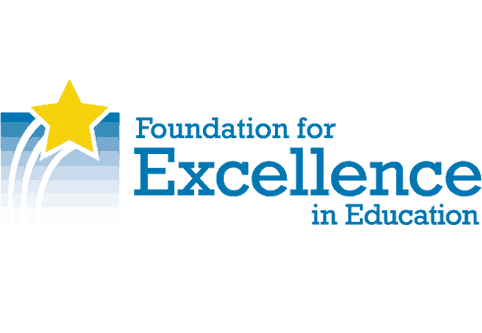2015 ExcelinEd National Summit on Education Reform

ExcelinEd’s flagship initiative, the National Summit on Education Reform is finally here! Now in its 8th year, the 2015 Summit in Denver, Colorado, will bring together an international audience interested in innovations in education, with a focus this year on how to give students a high-quality education to prepare them for college, career or the military.
The best and brightest education leaders from around the world will convene for this two-day event featuring keynote addresses, general and strategy sessions on the latest topics and innovations in education, book signings, networking opportunities and more. Last year’s National Summit was attended by more than 900 education leaders from five countries and 46 states.
Attendees leave the National Summit with the knowledge and networks to advance bold education reform in their states. Annual agendas cover a wide range of topics, such as how to:
- Measure and report the quality of education
- Hold schools accountable for learning
- Incentivize student achievement
- Use technology to customize learning for every student
- Recruit and retain the best teachers
- Expand choices for parents and students
If you aren’t joining the conference this year in person, there are many opportunities to join the conversation online:
- Follow @ExcelinEd on Twitter for the latest news and updates, and use #EIE15 to join the National Summit conversation.
- Check out www.ExcelinEd.org to see the latest news and receive updates.
This year’s summit will feature strategy sessions on:
- The proficiency gap and high-achieving students
- The Moynihan Report, education innovation and turnaround school districts
- Student data privacy, ESAs and PISA-based tests for schools
- #FaceTheStrain, small schools strategies and course access
Onward and Upward: Operation Student Success
Speakers
- Dr. Condoleezza Rice, 66th U.S. Secretary of State and board chair of the Foundation for Excellence in Education
- Dr. Sugata Mitra, Professor of Educational Technology at Newcastle University
- Dr. Arthur C. Brooks, President of American Enterprise Institute
- Campbell Brown, Co-founder and Editor-in-Chief of the Seventy Four
Strategy Sessions (Agenda Also Available Here)
Turn and Face the Strain: Problem and Solutions
We hear much about the impending retirement of the Baby Boomers and the anticipated impact on government budgets. Less talked about is another demographic challenge — a population boom of school-age children. Going forward, states will face increasing demands for both senior services and education spending, with a shrinking percentage of workers to pay for them. Learn how states can address an unsustainable public education system and make education more academically effective and cost efficient to meet the coming demographic shift.
Moderator: Mary Kissel, Editorial Board Member, The Wall Street Journal
Panelists:
- Hugh Blackwell, North Carolina House of Representatives
- Richard Corcoran, Speaker Designate, Florida House of Representatives
- Matthew Ladner, Senior Advisor of Policy and Research, Foundation for Excellence in Education
A Lesson from NYC: The Success of Small Schools
Big results can come from going small. Just look at the Big Apple, home to the nation’s largest public school system. Beginning in 2002, with philanthropic support, the New York City Department of Education closed many large low-performing high schools to create hundreds of small secondary schools. A rigorous multi-year study recently released findings showing the strategy’s success. Not only did this effort result in higher graduation rates and college enrollment, but it did so at a lower cost per graduate than traditional high schools. Join the session to learn from the leaders who launched NYC’s small schools strategy, the philanthropists who supported it and the researchers who studied it.
Moderator: Marc Sternberg, K-12 Education Program Director, Walton Family Foundation
Panelists:
- Joel Klein, Former Chancellor of New York City Public Schools
- Rebecca Unterman, Research Associate, MDRC
- Tom Vander Ark, Author & CEO, Getting Smart
The Perfect Match: Course Access & College and Career Readiness
Too many high school graduates lack the knowledge and critical thinking skills employers and colleges require. To address this, states have created incentives for high schools where students earn industry-recognized credentials or college credit. Individual schools, however, are unlikely to be able to offer the range of advanced, remedial, world language or career and technical courses students want and need to take. Course Access policies can fill those gaps by giving students access to courses from a portfolio of diverse, accountable providers. Join this session to learn how states can use complementary College and Career Readiness and Course Access initiatives to prepare students for success.
Moderator: Lowell Matthews, State Policy Director for College and Career Readiness, Foundation for Excellence in Education
Panelists:
- Alvin Bargas, President, Pelican Chapter of Associated Builders and Contractors, Inc.
- Arthur Coleman, Co-Founder and Managing Partner, EducationCounsel LLC
- Dr. Barbara Jenkins, Superintendent, Orange County Public Schools, Florida
- Dave Lefkowith, Assistant Superintendent, Louisiana Department of Education
Communicating Student Data Privacy: Challenges and Opportunities
Student data is critical to improving educational outcomes. Data informs parents, supports high-quality teaching, drives personalized learning and underpins school accountability. But parents also need to know how their child’s data is used and know that schools are taking the necessary steps to keep it secure. Join this session to gain insights into how to communicate about student data privacy issues and to learn how thoughtful policies can strike a balance between protecting student data and allowing teachers, leaders and policymakers to use data to improve education.
Moderator: Aimee Rogstad Guidera, President and CEO, Data Quality Campaign
Panelists:
- Buzz Brockway, Georgia House of Representatives
- Mark Schneiderman, Vice President of Government Affairs, SchoolMessenger & Former Senior Director of Education Policy, Software and Information Industry Association
- Kristin Soltis Anderson, Founder, Echelon Insights
- Elana Zeide, Research Fellow, New York University’s Information Law Institute
The Year of Education Savings Accounts
Education Savings Accounts (ESAs) started as an experiment in 2011 to offer educational choice and customization in Arizona. Since then, the program has grown. Florida passed an ESA program in 2013, and this year three more states created programs and lawmakers filed ESA bills in nearly two-dozen states. Nevada, the latest state to create an ESA program, will soon have all 450,000 public school students eligible to participate. In 2016, close to a million students in five states will be eligible for an ESA. These programs create unprecedented levels of educational choice, but rely on carefully-crafted and implemented policies to succeed. This panel will provide a policy overview, look at implementation of existing ESA programs and explore lessons learned for those interested in pursuing ESAs in their state.
Moderator: William Oberndorf, Chairman, Oberndorf Enterprises, LLC
Panelists:
- Derrell Bradford, Executive Director, NYCAN
- Scott Hammond, Nevada State Senate
- Adam Peshek, Director of Choice and Impact, Foundation for Excellence in Education
- Katie Swingle, Parent of Gregory, Florida
PISA for Schools: How International Results Can Impact Local Students
America’s educational shortcomings are not limited to low-income students in low-income neighborhoods. Rather, our students from every economic background lag behind their peers in most developed countries, according to Rick Hanushek’s 2014 analysis of Programme for International Student Assessment (PISA) results, Not Just the Problem of Other People’s Children: U.S. Student Performance in Global Perspective. Fortunately, there’s a new tool to fuel progress. The PISA-based Test for Schools allows individual schools to administer an assessment to a sample of their 15-year-old students and compare themselves to the highest performing schools around the world. With these results, teachers and administrators can identify the actions required to prepare all students to succeed in today’s global economy. Panelists will examine the revealing results of this analysis and discuss how states, schools, districts and charter networks can use this important tool.
Moderator: David Winston, President, The Winston Group
Panelists:
- Dr. Mitchell Chester, Commissioner of Elementary and Secondary Education, Massachusetts
- Dr. Patricia F. Deklotz, Superintendent, Kettle Moraine School District, Wisconsin
- Dr. Eric Hanushek, Senior Fellow, Hoover Institution of Stanford University
- Jon Schnur, Executive Chairman, America Achieves
The Proficiency Gap: Why It Matters for Your State
States need to set high proficiency expectations for students in the critical subjects of reading and math, the two building blocks of education. Yet most states set the bar for proficiency in these subjects far too low on their annual standardized tests, leading parents and teachers to believe students are performing better than they actually are. Many states have transitioned to new tests, creating an opportunity to raise proficiency expectations that reflect true mastery. This session will explain the significance of the proficiency gap, share strategies for communicating the importance of rigorous expectations and underline the importance of conveying honest, consistent information about student performance.
Moderator: Dr. Christy Hovanetz, Senior Policy Fellow of Accountability, Foundation for Excellence in Education
Panelists:
- Dr. Tommy Bice, Alabama State Superintendent of Education
- Karen Nussle, Executive Director, Collaborative for Student Success
- Cornelia Orr, Executive Director, National Assessment Governing Board
- Scott Sargrad, Director of Standards and Accountability, American Progress
Beyond Proficiency: What It Means to Raise Expectations for All Children
National achievement data clearly demonstrates that we need to raise expectations for all students, including our highest-achievers. The achievement gap receives a lot of attention and for good reason. But states don’t have to choose between focusing on low-performing students and high performers; they can accelerate the achievement levels of all children, including the academically advanced. During this session, panelists will explore efforts in America and around the globe to support the highest-achieving students and will discuss policies and programs to support these strong learners.
Moderator: Hanna Skandera, New Mexico Secretary of Public Education
Panelists:
- Dr. Chester Finn, Jr., Distinguished Senior Fellow and President Emeritus, Thomas B. Fordham Institute
- Erik Fresen, Florida House of Representatives
- Dr. Jonathan Plucker, Raymond Neag Endowed Professor of Education, University of Connecticut
- Dr. Christina Theokas, Director or Research, The Education Trust
How to Find and Attract the Best Charter Management Organizations to Your State
High-performing charter management organizations are in demand across the country. But what factors do these providers take into account before deciding whether to scale into a state? This panel will unveil the results of a study of more than a dozen high-profile charter management organizations, sharing what they look at when considering expansion. Join this session to learn which policies high-quality charter management organizations prioritize and what education leaders can do to make their states friendlier to these providers.
Moderator: Todd Ziebarth, Senior Vice President for State Advocacy and Support, National Alliance for Public Charter Schools
Panelists:
- Rebecca Goldberg, Partner, Bellwether Education Partners
- Kristoffer Haines, Partner, Ampersand Education
- Allison Serafin, Founder and President, Opportunity 180
Teacher Protection: Upsetting the Union Gravy Train
Many state laws currently prioritize the agendas of teachers unions over the needs of students, taxpayers and even teachers themselves. Governments often serve as union dues collectors, membership protectors and union defenders by failing to provide teachers with more options. Teachers unions have evolved into self-preserving bureaucracies, building protections and power for union leaders — rather than teachers — into state and local policies as they go. Join this session to learn what some states are doing to untangle these knots and restore power to individual teachers.
Moderator: Lindsey Burke, Will Skillman Fellow in Education, The Heritage Foundation
Panelists:
- Jeanne Allen, Senior Fellow and President Emeritus, The Center for Education Reform
- Grant Hodges, Arkansas House of Representatives
- Jay Love, Finance Chairman, Business Education Alliance of Alabama
- Ross Spano, Florida House of Representatives
Faces of Reform: Why Our Actions Matter
If you knew your local public school was limiting your child’s success, what would you do? For millions of parents across the nation, this isn’t a hypothetical question. These families struggle with the reality of sending their children, day after day, to schools that cannot or will not meet their needs. In this session, step away from policy details and political arguments to hear firsthand the powerful effect school choice is having on children’s chances to achieve success. These panelists – a student, a parent, a principal and a researcher – join us to share their own personal stories and to remind us why we champion these policy reforms. Policy can change lives for the better.
Moderator: Campbell Brown, Co-Founder and Editor-in-Chief, The Seventy Four
Panelists:
- Dr. Atira Charles, CEO, Think Actuality, LLC
- Nicholas Ford, Student, Indiana
- David Oclander, Principal, Central Collegiate Academy
- Taniya Stanton, Student, North Carolina
- Katie Swingle, Parent of Gregory, Florida
The Moynihan Report: 50 Years Later
Five decades have passed since Daniel Patrick Moynihan sounded the alarm regarding the dissolution of the traditional African American family. Since then, the trends that concerned Moynihan have continued and broadened into the general American population, where people born into poverty all-too often become trapped there for a lifetime unable to achieve the American Dream. Join this discussion on the original 1965 Moynihan Report and the socio-economic trends that have taken place since its release. Panelists will discuss how the current education system has failed to address these issues, and examine reforms designed to do so, including school choice and Pay for Success.
Moderator: Dr. Chester Finn, Jr., Distinguished Senior Fellow and President Emeritus, Thomas B. Fordham Institute
Panelists:
- Kevin Chavous, Executive Counsel, American Federation for Children
- Matthew Joseph, Policy Director for Education Funding Reform, Foundation for Excellence in Education
- Dr. Paul Peterson, Henry Lee Shattuck Professor of Government, Harvard University
- Lesley Poole, Chief Executive Officer, SEED Foundation
How to Spark Education Innovation in Your State
Terms such as blended learning, competency-based learning and personalized learning are occasionally tossed around as if they are interchangeable. While there are ways in which these innovations overlap, there are key differences between them – differences that can have significant implications for policymakers seeking to cultivate innovative education models in their states. Join this interactive session to learn the differences between innovative education models, discuss the range of policies states can pursue to encourage innovation, and explore policies and lessons learned from states with experience.
Moderator: Stacey Childress, Chief Executive Officer, NewSchools Venture Fund
Panelists:
- Dr. Lisa Duty, Partner, The Learning Accelerator
- D. Craig Horn, North Carolina House of Representatives
- Thomas Rooney, Superintendent, Lindsay Unified School District, California
- Marilyn Whitney, Senior Special Assistant for Education, Office of the Idaho Governor
Creating Turnaround: School Districts That Work
Many states are considering new approaches to fixing failing schools, including the creation of statewide school districts. These special districts go by different names – Recovery, Achievement or Opportunity. Despite the differences amongst these districts, each relies on the same fundamental principles to transform failing schools into effective schools. This panel will highlight those central principles and explore the success of the New Orleans Recovery School District and other proven turnaround models.
Moderator: Dr. Michael McShane, Director of Education Policy, Show-Me Institute
Panelists:
- John DeBerry, Jr., Tennessee House of Representatives
- Dana Peterson, Deputy Superintendent of External Affairs, Louisiana Recovery School District
- Nelson Smith, Senior Advisor, National Association of Charter School Authorizers
For more on ExcelinEd check out:
- Personalizing and Guiding College and Career Readiness
- What Can We Learn About Personalized Learning from Individualized Education Plans?
- EdPolicy Education: New MOOCs from ExcelinEd
The Foundation for Excellence in Education is a Getting Smart Advocacy Partner
Stay in-the-know with all things EdTech and innovations in learning by signing up to receive the weekly Smart Update.







0 Comments
Leave a Comment
Your email address will not be published. All fields are required.